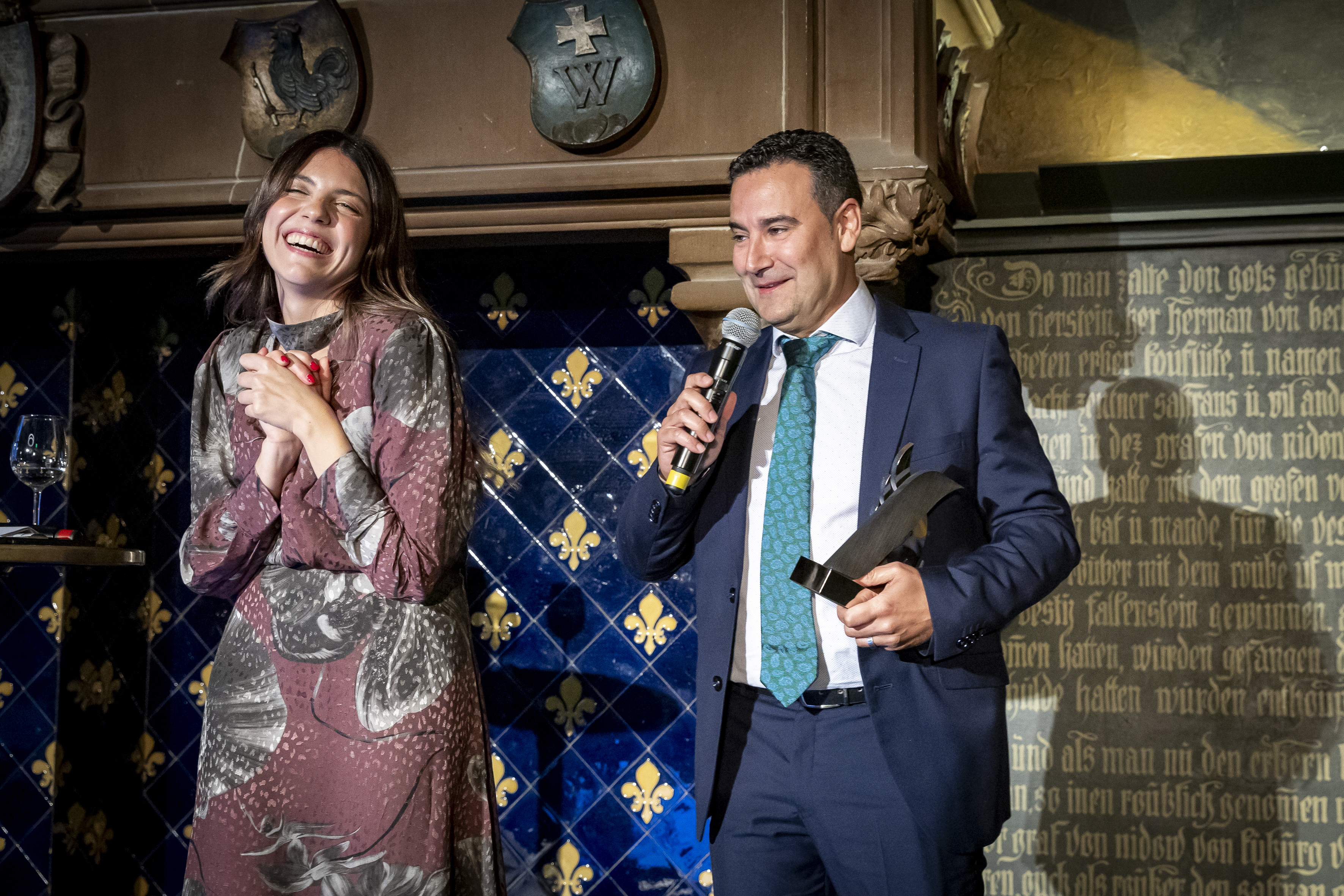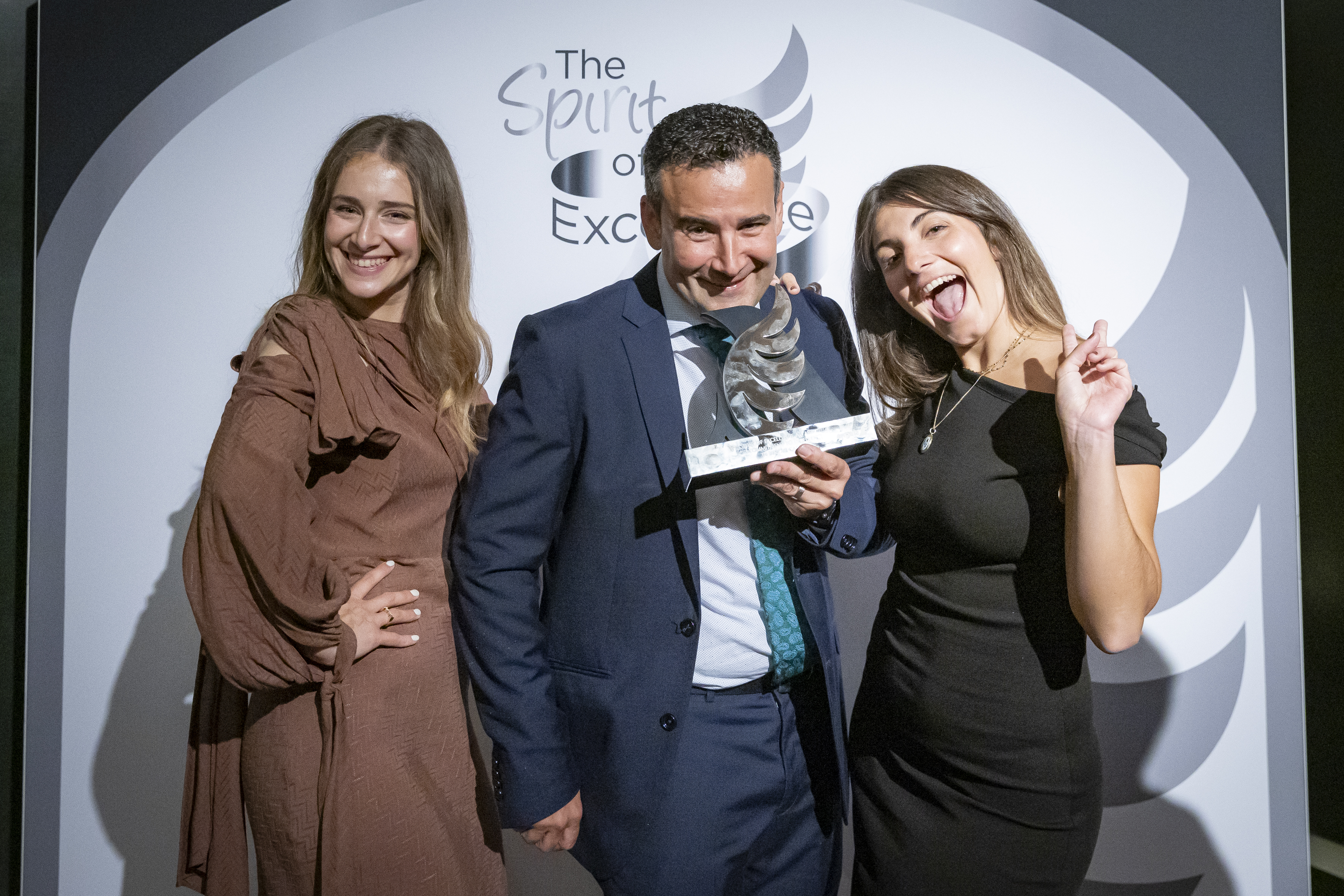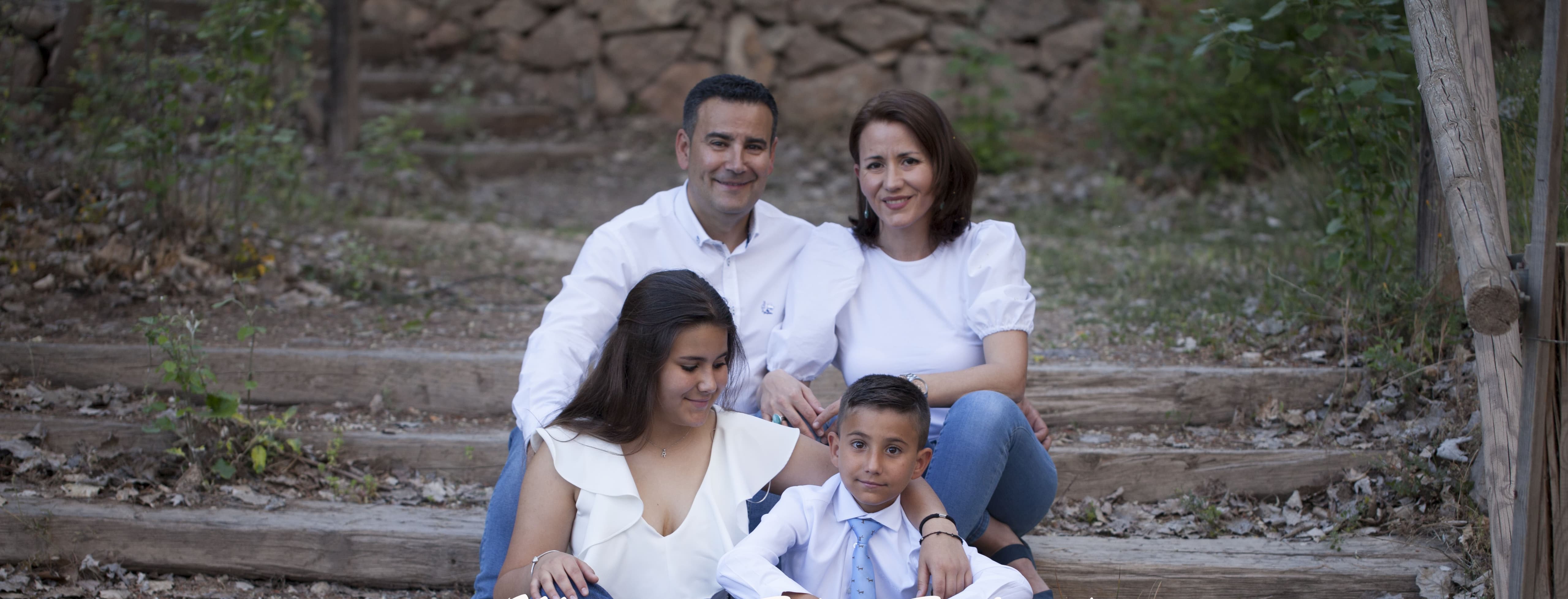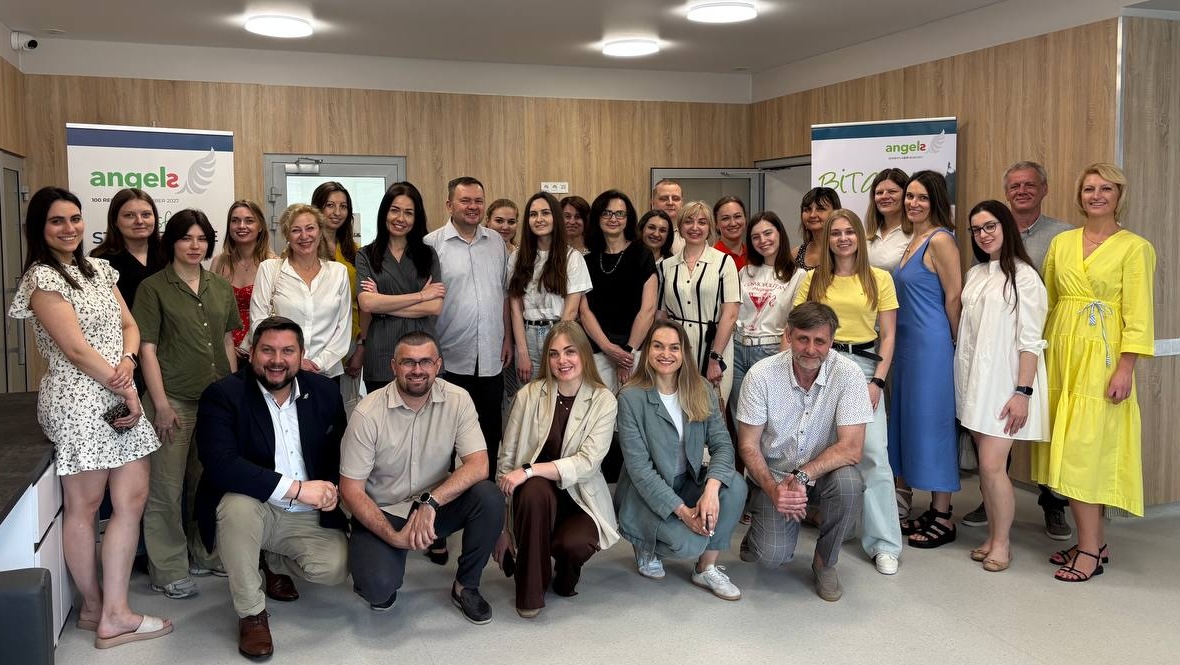
Existem seis Angels em Espanha, embora encontre apenas cinco delas na secção Conheça a Equipa do website Angels. O sexto Angel, assim designado pela equipa espanhola de consultores, é Joaquín García, o supervisor de enfermagem da unidade de AVC no Hospital Universitário Torrecárdenas em Almería.
O trabalho de Joaquín, dentro e fora do seu próprio hospital e região, exemplifica tudo o que a Iniciativa Angels representa. Motivado pela excelência nos cuidados dos doentes de AVC, defende a importância da padronização e ajuda as equipas de enfermagem noutros hospitais a elevar os cuidados habituais através de formação e orientação. Não é apenas um defensor vocal da monitorização da qualidade, mas também prático – gravou um vídeo a explicar como registar doentes no RES-Q e partilha o seu número de telefone pessoal com aqueles que podem precisar de um pouco mais de ajuda.
“Joaquín também lidera pelo exemplo”, diz a consultora Angels Susana Granados. A sua dedicação à excelência e à melhoria orientada por dados ajudou o Hospital Universitário de Torrecárdenas a ganhar seis prémios diamantíferos consecutivos.
“Sempre fui atraído por dados”, diz Joaquín. “Os dados refletem a realidade. Sempre gostei da análise ao espelho. Os números são a única forma de obter uma imagem do que está a acontecer e do que pode ser melhorado.”
Capacitar enfermeiros
Por todas as suas conquistas, Joaquín García não se sente confortável nos holofotes, mas também não pode escapar, como um dos vencedores deste ano do prestigiado Prémio ESO Spirit of Excellence. “Fiquei muito entusiasmado, muito surpreendido,” afirma ele do prémio que é atribuído anualmente a cinco contribuintes excecionais para cuidados de AVC na Europa. “Fiquei profundamente honrado.”
Embora se distraia de tomar crédito pelo seu trabalho, preferindo desviar a nossa atenção para os doentes mais importantes e para a sua “equipa super competente”, o reconhecimento serve um objetivo adicional, que é capacitar a comunidade de enfermagem a abraçar novas oportunidades de liderança nos cuidados do AVC.
“Para um enfermeiro ser nomeado, ser reconhecido juntamente com os médicos por uma iniciativa global é algo positivo se ajudar outros enfermeiros a ver que é possível”, diz Joaquín. “Ainda é um desafio para a sociedade ver os enfermeiros como capazes, independentes e capacitados. Mesmo os próprios enfermeiros nem sempre acreditam que é possível.”
No entanto, um corpo de enfermagem capacitado que seja capaz de influenciar a prática faria uma grande diferença nos cuidados de AVC e cuidados de saúde, acredita Joaquín. “Os médicos tratam doentes, os enfermeiros cuidam dos doentes. E para dar a estes doentes a melhor qualidade de cuidados, precisam de formação, conhecimento e apoio científico.”
O seu papel na mudança das perceções da enfermagem poderia um dia tornar-se no legado deste bónus de Angel.

Encontrar o seu nicho
A história de Joaquín está enraizada na profissão de enfermagem. O que ele descreve como uma infância muito feliz teve lugar em Pescadería, uma comunidade de pescadores e dançarinos flamencos em Almería onde a sua família ainda vive. “Estou muito orgulhoso por vir daí,” afirma ele.
Sua mãe era técnica de enfermagem no hospital local onde Joaquín era visitante frequente. “Eu também passei fins de semana lá, adorei”, lembra. Nunca houve qualquer dúvida de que ele também se tornaria enfermeiro.
Para os seus estudos iniciais, escolheu o local de nascimento do seu pai, Melilla, que, através de uma das peculiaridades da história pós-colonial, é uma cidade autónoma de Espanha na costa do Norte de África famosa pela sua arquitetura modernista. Depois de regressar ao continente, Joaquín embarcou em estudos especializados em gestão de enfermagem, enquanto trabalhava numa série de funções de enfermagem em diferentes ambientes geográficos e de cuidados de saúde – em clínicas locais e privadas, em ambulâncias, centros de transfusão e serviços de urgência. Da forma que diz, continuou a trocar uma zona de conforto por outra até se sentir atraído por neurocirurgia durante uma rotação nos cuidados intensivos e percebeu que era onde podia, e iria, desenvolver-se como profissional de saúde.

Construir uma rede
“Comecei em neurocirurgia em 2010. Adorei o trabalho e aprendi muito”, afirma. “Adorei trabalhar com doentes de neurocirurgia. Após três anos e meio, em 2013, foi-me oferecido o cargo de supervisor de enfermagem no departamento de neurologia. O nosso hospital começou a tratar o AVC isquémico com trombólise em 2014. Foi uma grande mudança. Após o tratamento, estes doentes seriam internados na UCI e até à abertura da unidade de AVC em 2018 foram hospitalizados no centro de neurologia. Fizemos o melhor que pudemos, mas houve uma grande melhoria após a unidade de AVC abrir.
“Quando o primeiro doente foi admitido na unidade de AVC, toda a equipa reuniu-se à sua volta, estávamos nervosos com o que fazer. Ele pode ser o melhor doente que tratámos até agora porque queríamos fazer tudo o mais perfeitamente possível. Se ele não recebeu os melhores cuidados, certamente recebeu a atenção mais pessoal.”
O protocolo aplicado pela equipa de Torrecárdenas com tanto cuidado tinha sido adaptado do Hospital Universitário Virgen de las Nieves em Granada, e seguiram-no rigorosamente, implementando também processos de cuidados pós-agudos para gerir a febre, hiperglicemia e deglutição
que só mais tarde descobriram ser o protocolo FeSS.
Após 2019, o Comité Diretivo de Enfermeiros Andaluzas (GENVA), que foi fundado para promover a padronização dos cuidados de enfermagem de AVC na região, tornou-se uma plataforma para partilhar conhecimento e experiência. Joaquin, que desempenhou um papel fundamental na criação do grupo, diz: “Pegámos no que era bom para a unidade, fizemos a nossa investigação e implementámos o que funcionou.”
Depois de a GENVA ter expandido a sua rede, Joaquín ajudou hospitais na sua região a desenvolver protocolos para cuidar dos doentes de AVC,e atua como mentor para hospitais noutros locais em Espanha que estão a desenvolver unidades de AVC.
A sua abordagem a este alcance regional está diretamente fora do manual Angels. Ele diz: “O meu trabalho não é fazer os outros fazerem o que eu fiz, mas contar a minha história, partilhar as vantagens que me trouxe e espalhar a palavra.”
A mãe de Joaquin, a sua primeira ligação com a enfermagem, ainda vive em Pescadería e ele acha que ela se orgulha.
“Ela é uma mãe orgulhosa,” afirma ele sequinho, “ela também se orgulha do meu irmão.”
Uma vida descontraída espera por si fora do trabalho. Joaquin conheceu a sua esposa quando ambos estavam a trabalhar na mesma clínica e rapidamente se tornaram uma família. Além de estar na mesma profissão, ele e a sua esposa partilham o amor de correr e estão a criar dois filhos juntos – uma filha de 13 anos e um filho de nove anos.
O jovem de nove anos já decidiu a sua opinião sobre a sua futura carreira, deixando pouca dúvida de que haverá uma terceira geração de enfermeiros na família García.
Também é assim que deixa o seu legado.



